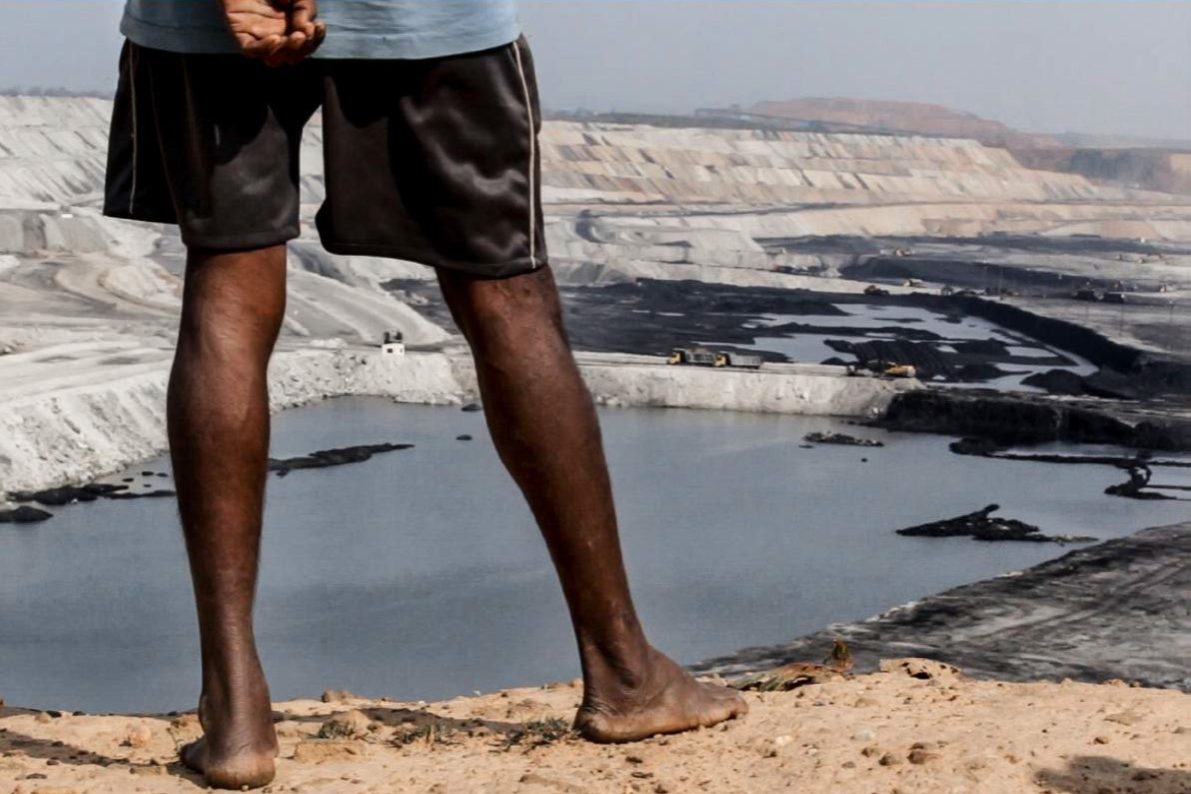Landgrabs, Institutional Violence and Shrinking Civic Space
Introducing the Symposium "Adivasi Struggles in Chhattisgarh"
India is often referred to as the “world’s largest democracy,” yet minority protection has always been a field of fierce contestation in post-independence India. Adivasis (the indigenous peoples of India) and many other groups such as Muslims, Christians, Sikhs and Dalits have historically been targets of violence at different times since India gained full independence from British colonial rule in 1947. In recent years, a phase of undermining minority rights has been (re-)emerging. Against this background, India Justice Project, the European Center for Constitutional and Human Rights, and the Völkerrechtsblog introduce the symposium “Adivasi Struggles in Chhattisgarh,” which will shed light on the specific institutional and state-corporate violence experienced by the Adivasis inhabiting the state of Chhattisgarh, as a demonstrative example of the shrinking space for minorities across the country.
Given the lack of in-depth engagement with the question of (indigenous) Adivasi rights by UN member states during India’s previous Universal Periodic Review (UPR) processes, India Justice Project and London Mining Network, together with a civil society coalition, have filed a joint stakeholder submission to India’s upcoming 2022 UPR cycle. The submission presents insights into the ongoing assault of the Indian state and mega-corporations on the indigenous peoples of the country, particularly highlighting the legal and institutional means through which powerful state, military and corporate actors shrink space for Adivasi rights in Chhattisgarh.
While Adivasi rights over their land and forest are recognized by the Indian constitution, the laws necessary to enforce these inherent rights of self-governance over ancestral lands have only been codified in law recently, most prominently through the Forest Rights Act (FRA) in 2006. The FRA’s explicit objective was to remedy the historical injustice faced by the Adivasis in India both before independence and after. The advancements and successes laid down in the FRA and other laws, despite slow implementation and factual obstacles to claiming these rights, are now under threat by the rising authoritarian regime of the Bharatiya Janata Party (BJP). India’s current ideological trajectory under the rule of the BJP and its prime minister, Narendra Modi, is not only a Hindutva state but also developmental capitalism, with the need for resource extraction for economic growth as the main justifier of state violence against around 104 million Adivasis.
Located in Central India, the State of Chhattisgarh was carved out of Madhya Pradesh in 2000 to facilitate state-sanctioned and corporate-led resource extraction, with indigenous rights being the main obstacle to overcome. The state of Chhattisgarh’s official website explains it best:
“The basic purpose of its formation, according to the government’s rationale, would be defeated if the natural resources are not used due to constraints of stringent protective forest laws and environment problems. To ease these strains and to provide accessibility for the purpose of natural resources utilization to the deprived class of the region, it has become imperative to draft a suitable mineral policy for the nascent State. The stringent self-serving policies are detrimental to facilitate financial investment.”
Despite the laws passed to recognize Adivasi rights to their land and forests, Chhattisgarh has witnessed illegal or forceful acquisition of indigenous lands, widespread displacement and environmental devastation. This has given rise to a decades-long conflict in the southern areas of Chhattisgarh, known as Bastar. Although the Indian state has acknowledged the socio-political roots of the conflict, its response has been largely militaristic. The region has been flooded with police battalions and paramilitary forces such that it has become one of the most militarized zones in the world, with Adivasis subjected to extensive human rights violations.
While this institutionalized violence against the Adivasis is not completely new, albeit accelerated under the BJP regime, what has been happening in Chhattisgarh since its foundation in 2000 tracks alongside the global trend of “shrinking space” for civil society as an umbrella concept to describe a “new generation of restrictions on political struggle.” These restrictions often include a mix of physical, legal, administrative, and discursive forms of repression, carried out by states and non-state actors alike. “Shrinking space” has been compounded by proliferating counter-terrorism frameworks post 9/11 that systematically deprioritize human rights in the face of security considerations and the nearly unfettered rise of corporate power in the face of globalization and privatization.
While the concept is useful to describe a new governance technique of closing civic space in the context of natural resource struggles, it is important not to lose sight of the fact that civic space is not shrunk by authoritarian regimes such as India as an end in itself. Rather, the root cause or main objective of shrinking civic space must be understood as a means to curb protest and organizing against the material conditions arising from a given authoritarian state policy. State-sanctioned landgrabs by big corporations lead to the displacement of the Adivasis from their ancestral lands and the destruction of the sources for their basic needs, such as the forest and water, for the purpose of resource exploitation. Resistance against these forms of violence is then curbed by labeling the Adivasis as encroachers of land at best or Maoist terrorists at worst.
This blog symposium explores the ways in which the law and such institutionalized trends in repression of civil society have intersected to shrink space metaphorically and quite literally for Chhattisgarh’s indigenous residents.
Tara Roy writes about the Hasdeo forest, home to several Adivasi communities and an ecologically sensitive region that has been devastated by ongoing mining practices. Adivasis are continuing to demand the recognition of their rights under several Indian laws to no avail in the face of empty promises of “development.” Roy sees their struggle as a stand-in for our collective future in the face of a decision between developmental capitalism or the survival of the planet as we know it.
Gautam Bhatia analyzes the 2022 Indian Supreme Court ruling in Himanshu Kumar v. State of Chattisgarh. The case, according to Bhatia, may mark an alarming trend in closing off the Supreme Court as an avenue for challenging state impunity by sending a signal that individuals face risks to their own freedom and security if they are unable to prove their claims to the satisfaction of the court.
Nikita Agarwal gives a detailed account of the story of Adivasi youth Arjun Kashyap – falsely charged, wrongly held and brutally killed by state agents on 15 August 2016, at the age of 19 – in Chhattisgarh’s conflict-ridden Bastar. Her blogpost showcases both the scale of crimes committed by Indian state forces against its indigenous citizens in Bastar and the perpetuation of these injustices by the “justice” system.
Alev Erhan takes the reader through the lived realities and legal frameworks that enable Adivasi displacement in the name of nature conservation projects. Despite the enactment of progressive laws in the early 2000s to protect Adivasi rights, Erhan showcases through an analysis of different conservation projects that current institutional developments in Chhattisgarh point to the successive erosion of these rights.
Allison West outlines the ruthless ways in which the Indian state uses spyware to surveil and suppress civil society resistance to large-scale development projects and the criminalization of activists as “terrorists.” While Adivasi leaders, trade union activists, lawyers, journalists and researchers have long been targets of state and vigilante harassment in Chhattisgarh, recent revelations of targeted Netwire and Pegasus spyware attacks take the state’s conduct to an unprecedented level. West elaborates how this is a dangerous escalation of the state’s efforts to avoid public dissent with alarming implications for Adivasi rights, the rule of law, and the functioning of democratic civic space in India.

Alev Erhan is a legal adviser at the European Center for Constitutional and Human Rights.


Meike Krakau is a doctoral candidate and a research assistant at the Chair of Public International Law and Public Law at the Ludwig-Maximilians University (Munich). Her research interests include international environmental law with a special focus on climate change litigation, human rights law and international adjudication. She is a Co-Editor-in-Chief at Völkerrechtsblog.


Allison West is a senior legal adviser at the European Center for Constitutional and Human Rights.